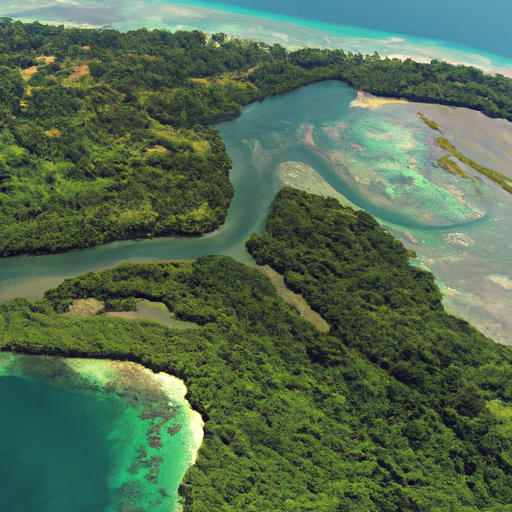-
Table of Contents
What are the benefits of protecting the marine environment?

The marine environment is a vital part of our planet, covering more than 70% of the Earth’s surface. It is home to a diverse range of species and ecosystems, providing numerous benefits to both humans and the environment. Protecting the marine environment is crucial for the sustainability of our planet and for future generations. Here are some of the key benefits of marine environment protection:
Marine Environment Protection
Marine environment protection refers to the efforts made to conserve and preserve the marine ecosystems and their biodiversity. It involves the implementation of various measures to prevent pollution, overfishing, and habitat destruction. By protecting the marine environment, we can ensure the following benefits:
- Preservation of Biodiversity: The marine environment is home to a vast array of species, many of which are yet to be discovered. By protecting it, we can preserve the biodiversity and prevent the extinction of various marine species.
- Climate Regulation: The oceans play a crucial role in regulating the Earth’s climate. They absorb a significant amount of carbon dioxide, a greenhouse gas responsible for global warming. By protecting the marine environment, we can help mitigate climate change.
- Food Security: The oceans provide a significant source of food for millions of people around the world. By protecting the marine environment, we can ensure the sustainability of fish stocks and maintain a stable food supply.
- Economic Benefits: The marine environment supports various industries, including tourism, fishing, and shipping. By protecting it, we can sustain these industries and promote economic growth.
- Recreation and Tourism: The marine environment offers numerous recreational activities, such as swimming, snorkeling, and diving. By protecting it, we can preserve these activities for future generations to enjoy.
Ocean Conservation Benefits
Ocean conservation refers to the preservation and sustainable use of ocean resources. It involves the establishment of marine protected areas, the regulation of fishing practices, and the reduction of pollution. Here are some of the benefits of ocean conservation:
- Preservation of Ecosystems: Ocean conservation helps protect fragile ecosystems such as coral reefs, seagrass beds, and mangrove forests. These ecosystems provide habitat for numerous marine species and contribute to the overall health of the oceans.
- Sustainable Fisheries: By implementing sustainable fishing practices, we can ensure the long-term viability of fish stocks. This not only benefits the environment but also supports the livelihoods of millions of people who depend on fishing for their income.
- Protection of Endangered Species: Many marine species, such as sea turtles, whales, and dolphins, are endangered or threatened. Ocean conservation efforts aim to protect these species and their habitats, ensuring their survival for future generations.
- Improved Water Quality: Pollution from land-based activities, such as agriculture and industrial waste, can have detrimental effects on the marine environment. Ocean conservation helps reduce pollution and improve water quality, benefiting both marine life and human health.
- Enhanced Resilience to Climate Change: Healthy and well-managed marine ecosystems are more resilient to the impacts of climate change, such as rising sea levels and ocean acidification. By conserving the oceans, we can help mitigate these effects and protect coastal communities.
Sea Life Preservation Advantages
Sea life preservation focuses on the protection of marine species and their habitats. It involves measures such as the establishment of marine sanctuaries, the reduction of bycatch, and the prevention of destructive fishing practices. Here are some of the advantages of sea life preservation:
- Conservation of Endangered Species: Sea life preservation efforts aim to protect endangered species, such as sharks, sea turtles, and coral reefs. By preserving their habitats and reducing human impacts, we can help these species recover and thrive.
- Ecological Balance: Marine species play a crucial role in maintaining the ecological balance of the oceans. By preserving sea life, we can ensure the stability of marine ecosystems and prevent negative cascading effects on other species.
- Educational and Scientific Value: Marine species provide valuable insights into the functioning of ecosystems and contribute to scientific research. By preserving sea life, we can continue to learn from these species and expand our knowledge of the marine environment.
- Preservation of Cultural Heritage: Many coastal communities have deep cultural and historical connections to the sea and its wildlife. By preserving sea life, we can protect these cultural heritage sites and maintain the traditions and identities of these communities.
- Enhanced Ecotourism Opportunities: Preserving sea life attracts ecotourism, which provides economic benefits to local communities. Tourists are drawn to destinations with diverse marine life, contributing to the local economy and raising awareness about the importance of conservation.
In conclusion, protecting the marine environment is essential for the preservation of biodiversity, climate regulation, food security, and economic growth. It also offers numerous benefits such as recreation and tourism opportunities, improved water quality, and the preservation of endangered species. By implementing marine environment protection measures, ocean conservation efforts, and sea life preservation strategies, we can ensure the sustainability of our oceans and the well-being of future generations.